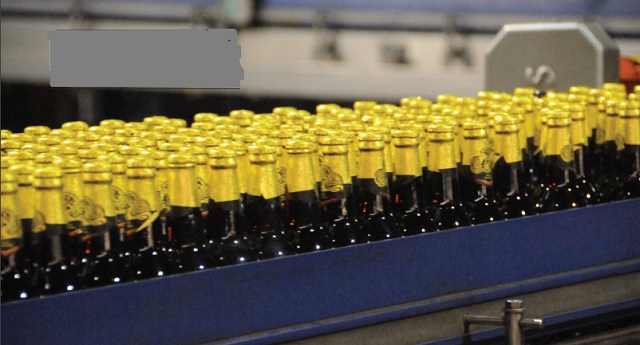
SICPA embroiled in fraud cases in various countries
Kampala, Uganda | PATRICIA AKANKWATSA | Ugandan government has bowed to pressure from manufacturers and decided to put on hold the introduction of Digital Stamps intended to plug revenue leakages.
This follows a series of meeting between the Minister of Finance, Planning and Economic Development, Uganda Revenue Authority and Uganda Manufacturers Association.
Finance Minister, Matia Kasaija, said during the latest meeting held at the ministry premises on December.13, that he ‘will not endorse anything that will be a burden to the manufacturers.’
Last month, the government said it had finalized plans to introduce Digital Tax Stamps as part of taxman’s scheme to combat illicit trade, seal revenue leakages, boost collections and increase efficiency in managing taxpayer compliance.
Digital Tax Stamps are physical paper stamps that are applied to goods or their packaging but in this case contains security features and codes to prevent counterfeiting. They are sought to enable manufacturers, distributors, retailers and consumers to conveniently verify and trade all specified goods throughout the distribution chain while ensuring that they meet their tax obligations.
This development comes as statistics from Uganda National Bureau of Standards show that 54% of products on the Ugandan market are either fake or counterfeits, signaling sale of counterfeit products to consumers and also loss of government revenue as they do not pay taxes.
However, manufacturers have opposed the new development arguing that it will increase cost of production to a staggering figure of about Shs100bn per annum.
Onapito Ekomoloit, the Legal and Corporate Affairs Director at Nile Breweries Limited, said introduction of the Digital Stamps means that the beer maker has to part with Shs30bn in installation of equipment to put the stickers on each beer bottle produced.
Similarly, Simon Kaheru, the Public Affairs and Communication Director at Coca Cola Beverage Africa (Uganda), said introducing the new technology means that the soda firm has to invest at least Shs 22bn to comply with the taxman’s requirements.
“Now these costs do not make any business sense at all,” he said. “We are very disturbed about the Digital Tax Stamps. In a way, it is negative and it is going to add to the cost of doing business,” said Barbara Mulwana, the board chairperson at the Uganda Manufacturers Association at an earlier meeting. “It is going to make it hard for consumers to afford our products and that will affect revenue that the government will collect.”
The manufacturers have also raised 37 other issues seeking for clarification from URA prior to the Digital Tax Stamps introduction.
Among the issues includes; the URA’s move to single source Swiss Company, SICPA, to install and run the Digital Tax Stamps system and why URA is starting to implement Digital Tax Stamps with formal manufacturers who have clear and audited production and distribution processes.
The manufactures also want URA to prove if introduction of Digital Tax Stamps will stir growth of the manufacturing sector and create more jobs for the local population, increase revenue collection and compliance considering that the formal manufacturers are already compliant, and show proof that there is under-declaration and undervaluation.
The manufacturers are also asking why they should bear the cost of installing Digital Tax Stamps equipment as well as pay for the stamps in advance, prefer foreign firm to undertake the task instead of the local functional security printing firm, and thus undermining Buy Uganda, Build Uganda policy as well as why URA cannot use barcodes to track and trace goods, a formal system that was already in the works by the standards bureau.
Besides manufacturers interest to know how much of the money paid for the stamps will go to the government and the contracting firm, the manufacturers also accuse the Swiss firm of involving fraud in countries they have won tenders including Kenya, Brazil, Morocco, Albania and the Philippines.
The manufacturers also want to verify the contracts signed between URA and SICPA. In May this year, Kenya’s High Court ruled that the Kenya Revenue Authority had not adequately followed constitutional provisions in terms of public consultation when imposing excise duties on bottled water, juices, soda and other non-alcoholic beverages.
 The Independent Uganda: You get the Truth we Pay the Price
The Independent Uganda: You get the Truth we Pay the Price




Great news